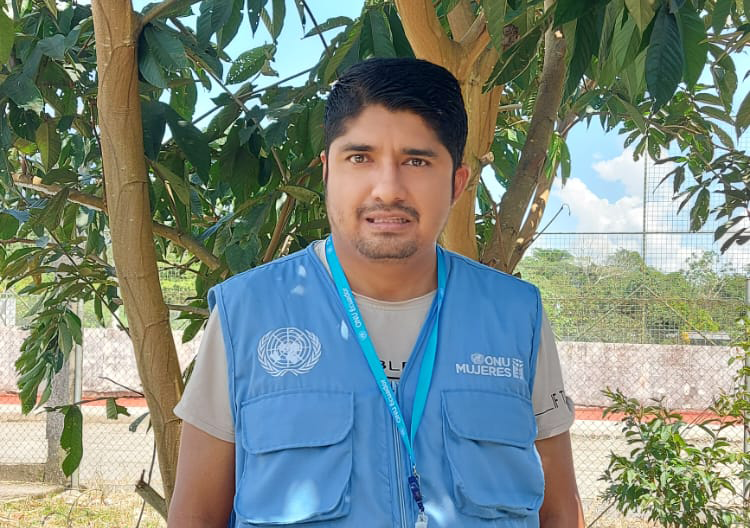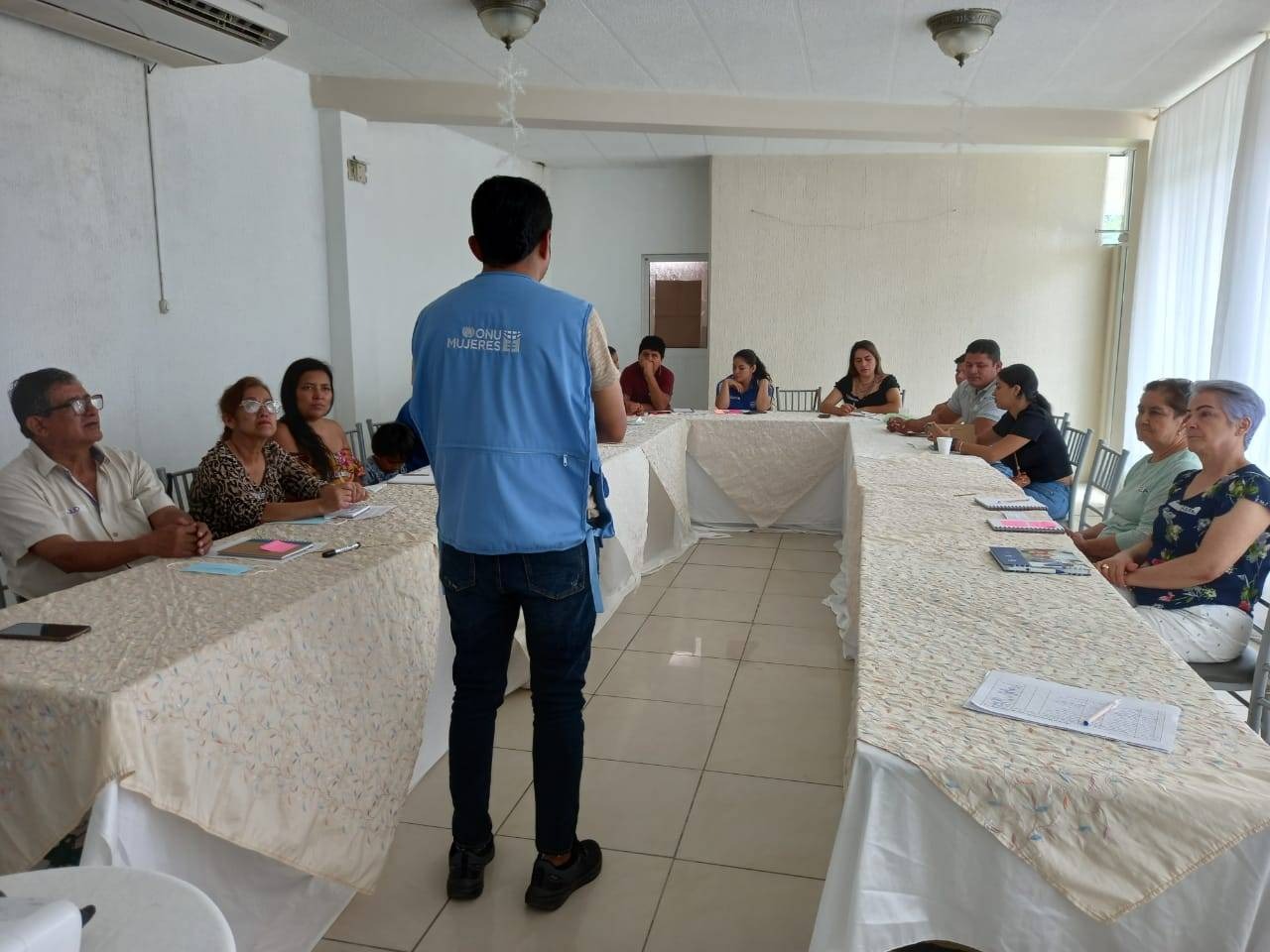In the words of Omar Quichimbo: "One of the greatest satisfactions of providing humanitarian assistance is to be able to serve migrants, refugees and the host community and contribute to their resilience processes".
Omar Quichimbo has a master's degree in International Cooperation and Development. He has worked in social projects related to the defense of children's rights and citizen training, as well as access to information technologies for young people. He is currently part of the Caminando project as a technical assistant in humanitarian aid in Sucumbíos and Esmeraldas.
Date:

Within the Caminando project, I work as a technical assistant in humanitarian aid for the provinces of Sucumbíos and Esmeraldas. In these provinces, we have worked in three different areas: the economic empowerment of women through the generation of livelihoods, the institutional strengthening of actors in key capacities for the care and protection of women and girls and conducting studies with a gender approach, as well as strengthening initiatives to prevent sexual exploitation and abuse of migrant women and girls, refugees and the host community who are in a situation or at risk of gender-based violence. In parallel, we work with migrant, refugee and host community men in a process of sensitization on non-violent and co-responsible masculinities to achieve gender equality.
These actions strengthen and support peace building by enabling the development of income-generating initiatives, which is a significant contribution to the autonomy of women in border areas, and strengthening the protection system, contributing to the prevention and response to the needs of women and girls who are survivors of violence.
The Caminando project allows us to provide humanitarian assistance to migrants in the province and in Ecuador in different ways. Migrants who have been forced to leave their country generally suffer violations of their rights during the process, therefore, the humanitarian response allows them to cover their basic needs, such as access to temporary housing, for which a guide for attention with a gender approach was generated for shelters located in border areas.

In providing vital assistance to migrants and host communities, we face many challenges. I believe that the main challenge is to strengthen social cohesion among the migrant population and the host community in border areas. In addition, it is necessary to sustain humanitarian action projects in which the participating population and the State, as the guarantor of rights, are involved from the beginning to the end, always with a gender approach.
On a personal level, one of the greatest satisfactions of being part of this project and providing humanitarian assistance is to be able to serve migrants, refugees and the host community and contribute to their resilience processes. Being part of the Caminando project has led me to promote gender equality in my community. From monitoring the sensitization process on co-responsible and non-violent masculinities with men of other nationalities, my masculinity has been challenged, making me reflect and share these experiences in my own family and with people close to me.
On this World Humanitarian Day, I would like to remind the world that migrants and refugees, particularly women and girls, who cross the northern border of Ecuador still require the intervention of international cooperation to alleviate their situation of vulnerability and guarantee their rights, but that it is also important to guarantee their participation in decision-making about the forms of assistance and protection they need.